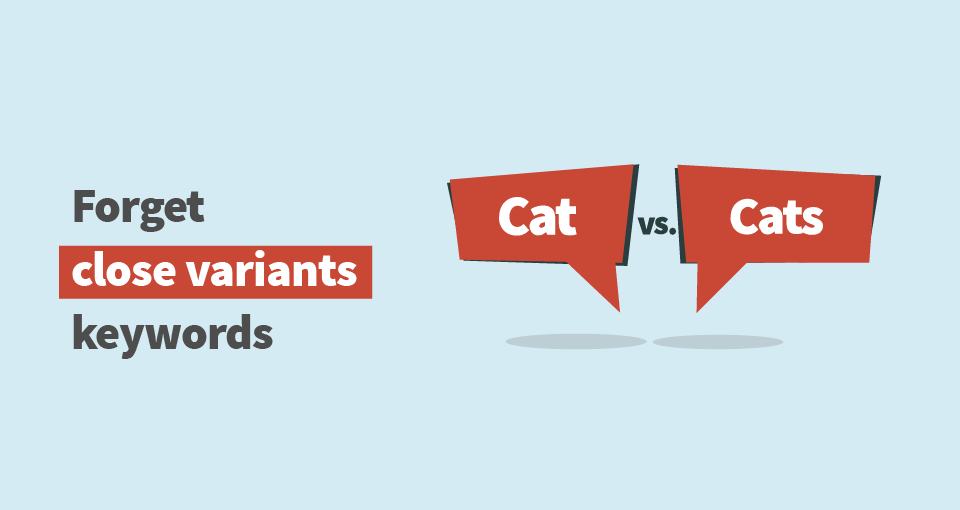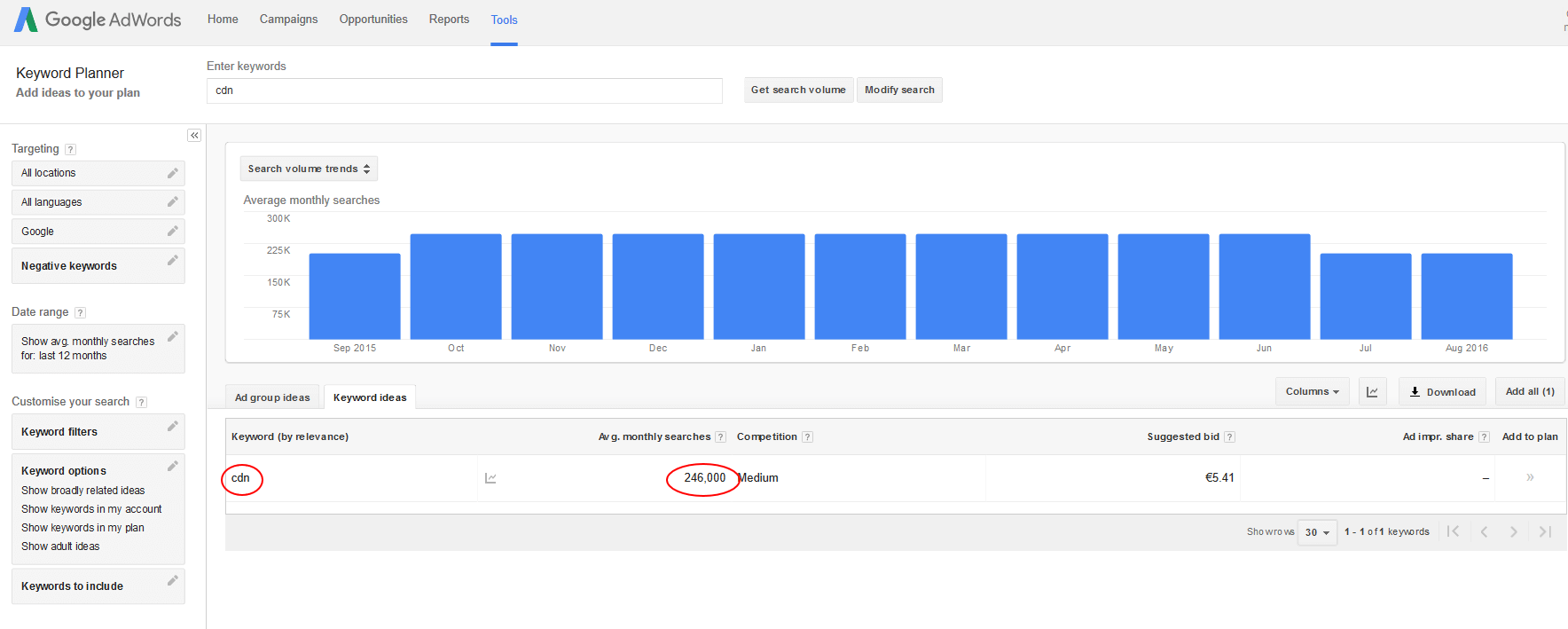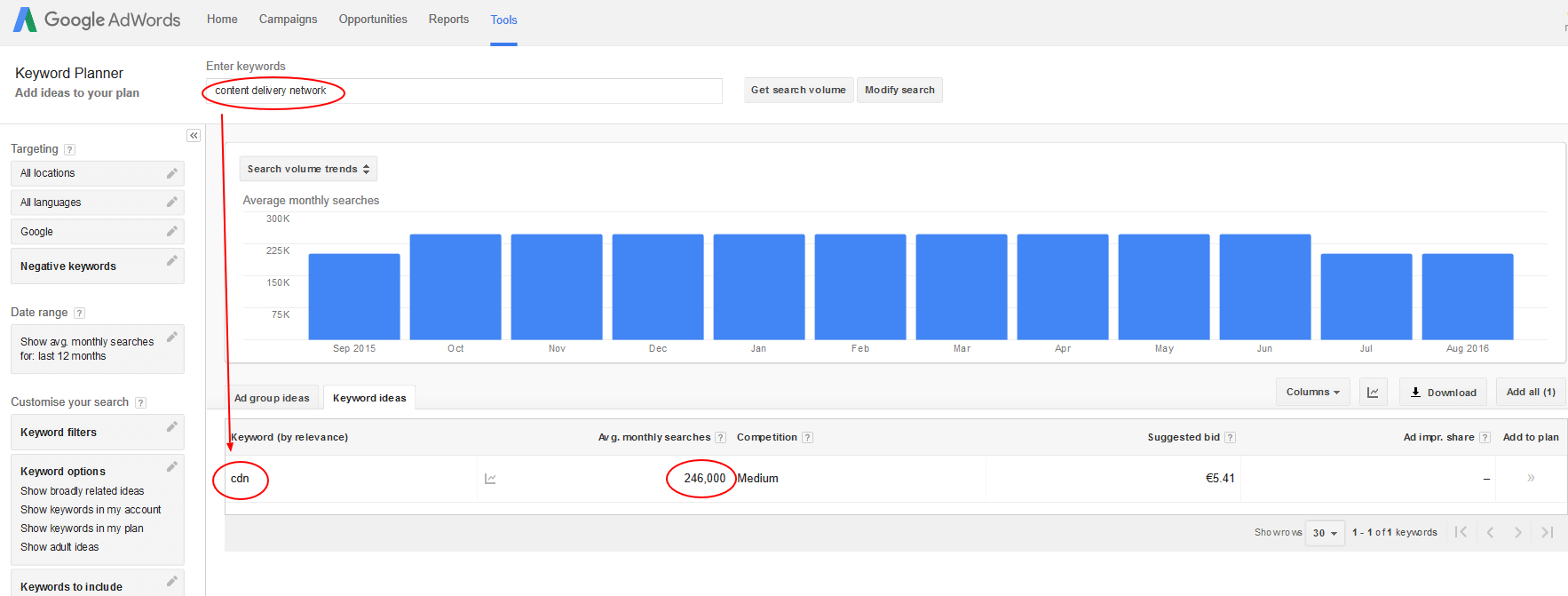Would you like to perform a keyword research with exact search volumes of close variants keywords (clustered search volumes)? Now you can, thanks to a new feature in KWFinder!
In 2016, Google Keyword Planner started showing keywords that are close variants of each other with the same search volume. Moreover, it recently stopped showing exact search volumes for many users. Consequently, you will end up with clustered data and search volume ranges instead of the exact search volumes of very similar keywords.
If you are interested in the exact search volumes vs. data ranges, you may find our page about search volumes useful.
We’ve conducted a research for the keyword “content delivery network”, which is likely to be abbreviated as “cdn”. Have a look at the screenshots below. These are the results for both keywords in the Keyword Planner (in case you are able to get the exact search volumes).
As we mentioned above, the volumes are identical. Having the results of close variants keywords with literally the same search volume of each can be critical to your business. Especially, when we are talking about geographical specifications, local businesses, or specific terms that could represent a totally different keyword.
We detect clustered search volumes whenever possible
That’s why we’ve decided to work hard to create an algorithm based on the historical data and the result is: We are able to clear the search volumes and provide the exact data even for close variants (clustered keywords). Keep in mind that Google clusters keywords constantly, therefore, it’s impossible to clear the search volumes of all keywords.
Let’s check the data for “content delivery network” and “cdn” again in KWFinder.
The search volume summary of these two terms isn’t equal to the Keyword Planner combined data. Why? That would apparently be the first question, and it would be a good one. You will see different search volumes in KWFinder compared to Keyword Planner. That’s because the results from KWFinder DON’T combine search variants whenever it is possible:
- American vs. UK English (i.e. optimization vs. optimisation, analyze vs. analyse) or any other language regional specifics
- abbreviated with full-length terms
- non-plurals with plurals
- different spelling (i.e. jobtitle vs. job title)
- words with or without punctuations (i.e. children game vs. children’s name)
Be precise
Thanks to this feature, the your keyword research is more precise than it has ever been so you can optimize for the “right” keywords.








